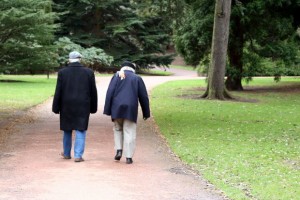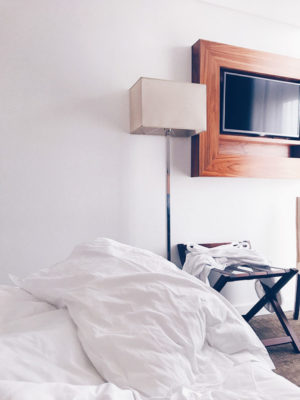As people age, one common complaint is that they’re not getting as much sleep as they used to.
When bodies change, patterns of sleep often change, too. People over the age of 50, for example, often find themselves getting tired earlier in the evening and waking earlier in the morning. Many people also find that as they get older, they have more difficulty falling asleep and remaining asleep throughout the night.
The transition from being asleep to being awake often is more abrupt, too, so it can seem as though sleep is more fleeting, or that you’re a lighter sleeper than in your youth.
And because senior citizens tend not to sleep as deeply throughout the night, they often need to stay in bed longer to get the same amount of sleep — and the sleep they do get often is of lower quality overall.
Good sleep is important for good health, so paying attention to sleep patterns is a good idea, as is taking steps to improve your sleep as you age.
How to get better sleep at night:

Going for a walk in the afternoon daylight can be a great way to prepare for sleep that night.
Go for a walk. Two things that can help you get better sleep: exercise and sunshine. Getting outside for a walk during the day can help tire you out (that’s a good thing!), and the exposure to sunshine helps your body understand when it’s time to be awake (daytime) and when it’s not (nighttime). Plus, it’s a great excuse to enjoy the beauty of Whatcom County. The Lynden trail system is a great place to start!
Avoid alcohol before bedtime. While alcohol can tend to make you sleepy at first, once its effects wear off, you’re more likely to wake up. So while you may fall asleep more quickly, your overall sleep time and sleep quality will be diminished. Also avoid drinking coffee and tea before bedtime, as the caffeine can keep you awake. Too much fluids in general close to bedtime can interrupt sleep if you need to get up to use the restroom.

Want a better night’s sleep? Try turning off the TV an hour or two before bedtime.
Turn off the screens. It can be tempting to engage in mindless TV, computer or phone time before bed, but all of that screen activity can actually keep our brains from winding down. To help you fall asleep better, turn off all of your screens at least an hour before bedtime.
Don’t lie in bed awake. If you’re still awake 15 or 20 minutes after you went to bed, get up until you think you’re tired enough to sleep. This can help train your brain to associate the bed with sleep. Oh, and don’t turn on the TV when you’re up. Instead, grab a book or just sit on the couch and be still.
Avoid naps. Sleeping during the day can rob you of sleep during the night. Don’t take naps during the day, if you can avoid it.
You might also try some of these other sleep tips from the U.S. National Library of Medicine. If sleep problems persist, it also would be a good idea to have a chat with your doctor about other ways to ensure good sleep.
